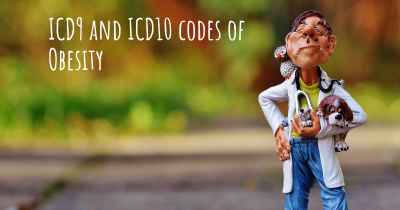Obesity diet. Is there a diet which improves the quality of life of people with Obesity?
Are you aware of a diet that can improve the quality of life of people with Obesity? Is there a diet that is suggested to avoid when having Obesity? See if there is a diet that can improve the quality of life of people with Obesity, recommended and to avoid food when having Obesity

Obesity is a complex health issue that affects millions of people worldwide. It is characterized by excessive body fat accumulation, which can lead to various health problems and a reduced quality of life. While there is no one-size-fits-all solution to obesity, adopting a healthy and balanced diet can significantly improve the quality of life for individuals struggling with this condition.
The Importance of a Healthy Diet for Obesity
A healthy diet plays a crucial role in managing obesity and improving overall well-being. It helps individuals achieve and maintain a healthy weight, reduces the risk of chronic diseases, enhances energy levels, and promotes mental well-being. When it comes to obesity, the focus should be on creating a sustainable eating plan that can be followed in the long term, rather than resorting to fad diets or extreme measures.
Key Components of an Obesity Diet
When designing a diet to improve the quality of life for individuals with obesity, several key components should be considered:
1. Calorie Control:
Weight management is primarily dependent on the balance between calorie intake and expenditure. To lose weight, individuals need to consume fewer calories than they burn. However, it is important to strike a balance and avoid excessively restrictive diets, as they can be unsustainable and lead to nutrient deficiencies.
2. Balanced Macronutrients:
A well-balanced diet should include all three macronutrients: carbohydrates, proteins, and fats. Carbohydrates should mainly come from whole grains, fruits, and vegetables, while proteins can be obtained from lean sources such as poultry, fish, legumes, and tofu. Fats should be primarily derived from healthy sources like nuts, seeds, avocados, and olive oil.
3. Portion Control:
Controlling portion sizes is essential for weight management. It helps individuals become more mindful of their eating habits and prevents overeating. Using smaller plates, measuring food portions, and paying attention to hunger and fullness cues can all contribute to better portion control.
4. Increased Fiber Intake:
Fiber is a key component of a healthy diet for obesity. It aids in digestion, promotes satiety, and helps regulate blood sugar levels. Foods rich in fiber include whole grains, fruits, vegetables, legumes, and nuts. Incorporating these into the diet can help individuals feel fuller for longer and reduce overall calorie intake.
5. Reduced Added Sugars and Processed Foods:
Added sugars and processed foods are often high in calories and low in nutritional value. They can contribute to weight gain and increase the risk of chronic diseases. Limiting the consumption of sugary beverages, sweets, processed snacks, and fast food is crucial for an obesity diet.
6. Regular Meal Patterns:
Establishing regular meal patterns can help individuals with obesity maintain a consistent eating schedule and prevent excessive snacking. Eating at regular intervals throughout the day, including breakfast, can also help control hunger and stabilize blood sugar levels.
7. Hydration:
Staying hydrated is important for overall health and weight management. Drinking an adequate amount of water throughout the day can help individuals feel full, reduce calorie intake, and support proper bodily functions.
Seeking Professional Guidance
While the above guidelines provide a general overview, it is important for individuals with obesity to seek professional guidance from healthcare providers, registered dietitians, or nutritionists. These experts can provide personalized advice, consider individual needs and preferences, and help create a tailored obesity diet plan that suits specific circumstances.
Remember, managing obesity and improving quality of life is a journey that requires patience, consistency, and a holistic approach. Alongside a healthy diet, regular physical activity, stress management, and adequate sleep are also vital components of a comprehensive lifestyle change.








